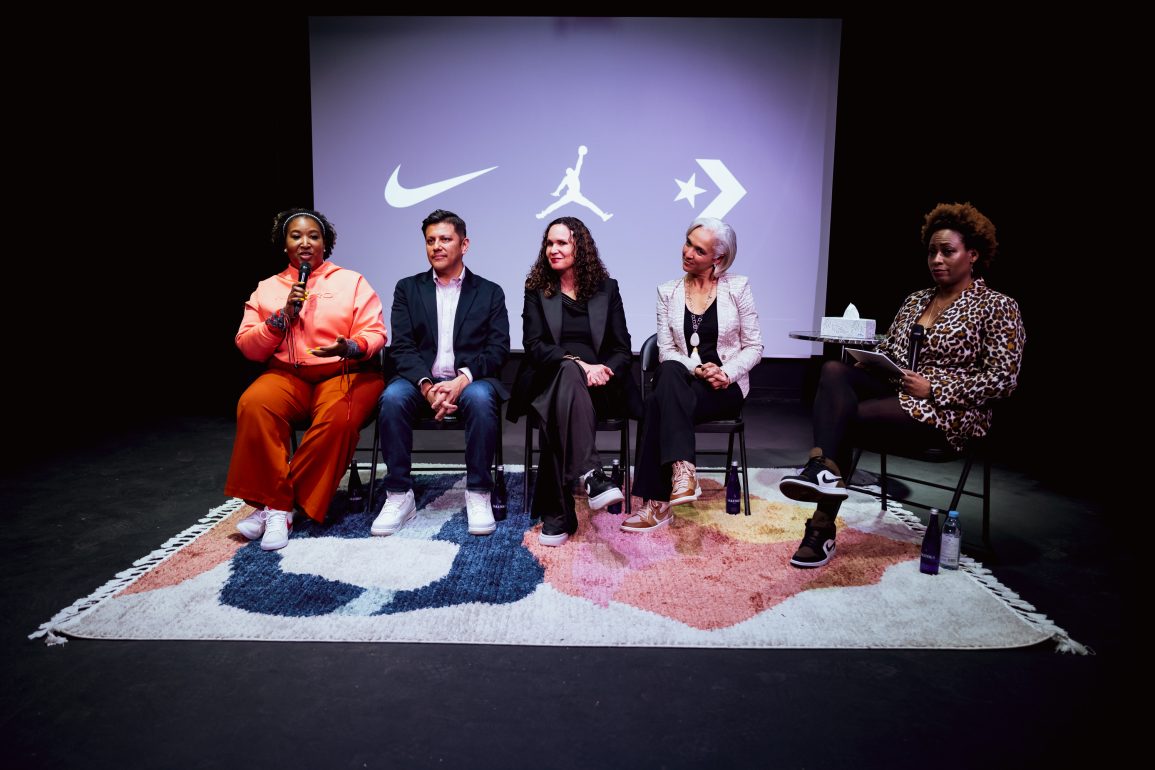For decades, Nike has been a blueprint for brand excellence. To this day, a copy of its 10 Principles is followed, referenced, and circulated all over the internet as brands and creatives aspire to achieve even a fraction of Nikeâ€
This comes four years after announcing the Black Community Commitment (BCC), a 10-year, $140 Million investment from Nike, Michael Jordan, and Jordan Brand to support the advancement of racial equity and dismantle systemic racism. It also comes at a time when many organizations nationwide are reporting losses, layoffs, and cutting budgets toward DEI efforts – a sad sign that the energy from 2020 is fizzling. Brands are quietly pulling away from their proclamations just four years ago, which is evident in a much quieter Black History Month than usual. Nike has not only continued its commitment to the Black Community but doubled down on it.
A part of this effort is the public release of The Nike Social & Community Impact Grantmaking Guide. This open-source playbook provides concrete steps for organizations to write successful grants and create change through their own community investments. The guide also shares Nikeâ€
To commemorate this, Nike, Jordan Brand, and Converse converged for the first time in a tri-brand private reception in Washington, DC, at the National Museum of African American History and Culture alongside some of the Black Community Commitment grant recipients, NIKE Inc. leaders, and Nike and Jordan Brand athletes.
In conversation with Vanessa Garcia-Brito, VP and Chief Social & Community Impact Officer at Nike, she lights up as we chat through the Black Community Commitment and how we can all show up in this battle against systemic racism at different scales. Beyond the BCC, Nike and Jordan Brand have a long history of empowering their athletes to support their own philanthropic efforts. Olympian Hurdler and mental health advocate Anna Cockrell led the formation of the United Black Student-Athletes Association (UBSAA) at the University of Southern California and is part of Nikeâ€
I was quick to share my initial hesitation to attend this event as a non-Black person but realized and affirmed that my purpose is to be part of the solution. Not to mention, as a woman of color and a first-generation immigrant, I have always felt compelled to contribute towards a more equitable future, specifically within my space. Garcia-Brito smiles and leans forward. “Iâ€
Photo: Nike VP and Chief Social & Community Impact Officer Vanessa Garcia-Brito. Via Nike
I thought back to the conversations we held earlier that night, and the ones to follow the next day. Ongoing and new grant recipients shared the impact Nike has made on their organizations through the Black Community Commitment. Beyond dollars, the guidance and support have been immeasurable. “This wasnâ€
Dr. Dâ€
“Share the stories. Create the space for other voices,†she implores. “We need to help people know that they exist and give those stories as much – or more – power than the stories that take away from this. And to focus on the outcome.†This is yet another demonstration that all of this, for us, is bigger than sneakers and deeply rooted in sport – both of which are built on Black culture. Sneakers and sports have the power to unify, build, and empower communities, and Nike uses this as a vessel to create impact – especially for underrepresented and underserved communities.
Nike transcends what it means to be a sports brand. Beyond sneakers, beyond their proximity to sport and athletes, beyond the court, the concrete and the track, Nike is making it clear that they want to be changemakers. What a fitting setting, during Black History Month, to celebrate this milestone: the National Museum of African American History and Culture in Washington DC. They put their grant recipients on center stage in the Oprah Winfrey Theatre. While most brands continue to capitalize on Black culture with limited BHM collections, they instead centered the people doing important work for the Black community.Â
Photo: Dancers from BCC Grant Recipient New Ballet Ensemble & School performing at the Oprah Winfrey Theatre. Via Nike
Through the BCC, Nike has committed $8.6 million so far in FY24 to national and local organizations, primarily focused in seven key cities in the US (Boston, Chicago, Los Angeles, Memphis, New York City, Portland, and St. Louis) and is on pace to fulfill its commitment of $40 million since FY21. For once, Nike isnâ€
